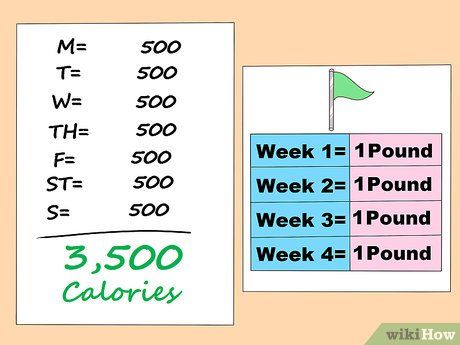In today’s fast-paced world, many people are looking for ways to lose weight quickly and effectively. One of the most important factors in weight loss is controlling your calorie intake. But how many calories should you eat to lose weight? In this article, we will explore the answer to this question and provide you with some tips on how to achieve your weight loss goals.
Understanding Calories and Weight Loss
Calories are units of energy that are found in food and drinks. When you consume more calories than your body needs, the excess calories are stored as fat, leading to weight gain. On the other hand, when you consume fewer calories than your body needs, your body will burn stored fat for energy, resulting in weight loss.
The basic principle of weight loss is to create a calorie deficit, which means consuming fewer calories than your body needs to maintain its current weight. By doing so, your body will tap into its fat reserves to make up for the energy deficit, leading to weight loss.
Calculating Your Calorie Needs
The number of calories you need to consume each day to maintain your current weight depends on various factors, including your age, gender, weight, height, and activity level. To determine your daily calorie needs, you can use a calorie calculator or consult with a nutritionist or dietitian.
Once you know your daily calorie needs, you can create a calorie deficit by reducing your calorie intake. A safe and sustainable rate of weight loss is about 1-2 pounds per week, which translates to a calorie deficit of 500-1000 calories per day.
Tips for Healthy Weight Loss
1. Focus on nutrient-dense foods: Instead of counting calories, focus on eating whole, nutrient-dense foods such as fruits, vegetables, whole grains, lean proteins, and healthy fats. These foods will not only help you feel full and satisfied but also provide your body with essential nutrients.
2. Practice portion control: Be mindful of portion sizes and avoid overeating. Using smaller plates, measuring your food, and avoiding mindless eating can help you control your calorie intake and prevent weight gain.
3. Stay hydrated: Drinking water before meals can help you feel full and prevent overeating. Aim to drink at least 8-10 glasses of water per day to stay hydrated and support your weight loss efforts.
4. Be consistent: Consistency is key when it comes to weight loss. Stick to your calorie deficit plan, be patient, and stay committed to your goals. Remember that sustainable weight loss takes time and effort.
Conclusion
In conclusion, determining how many calories you should eat to lose weight depends on your individual factors such as age, gender, weight, height, and activity level. By creating a calorie deficit through a combination of diet and exercise, you can achieve your weight loss goals in a safe and effective manner. Remember to focus on nutrient-dense foods, practice portion control, stay hydrated, and be consistent in your efforts. With dedication and patience, you can successfully lose weight and improve your overall health and well-being.

